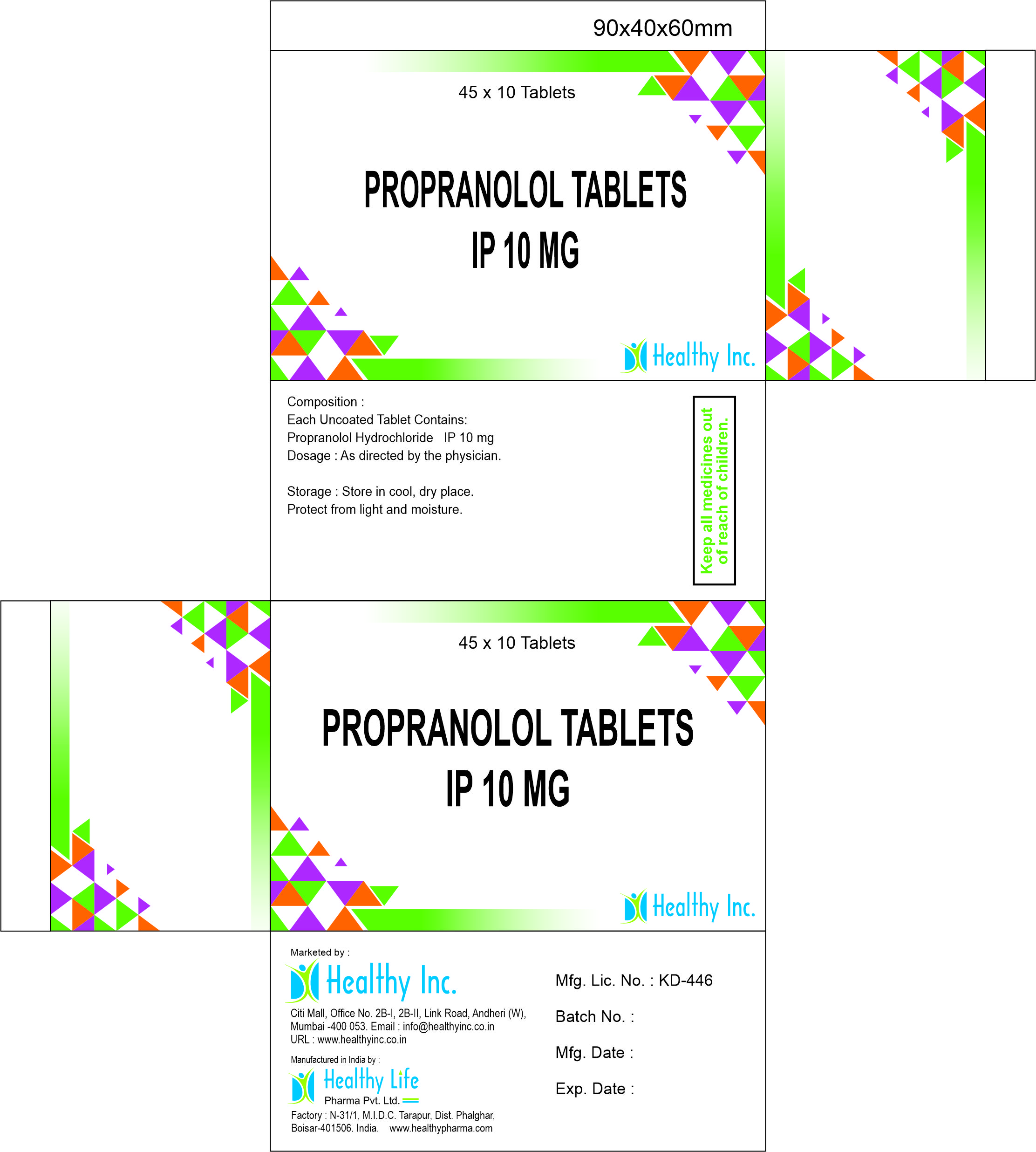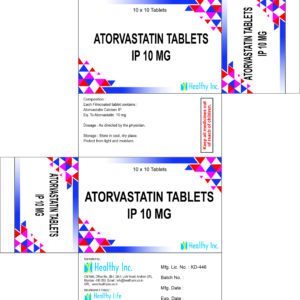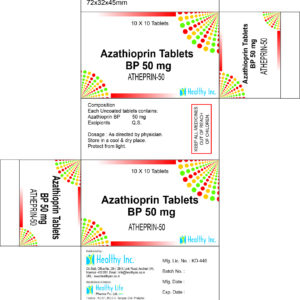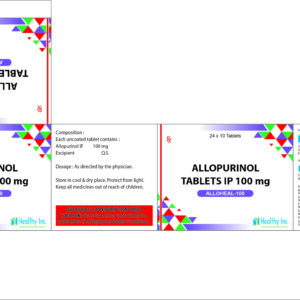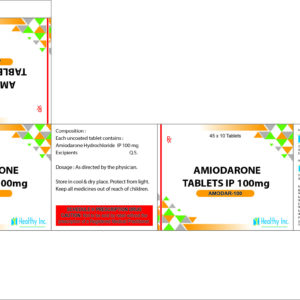Description
Propranolol Tablets (10mg / 40mg / 80mg)
Manufactured by Healthy Life Pharma Pvt. Ltd. | Exported by Healthy Inc
1. Product Introduction Healthy Life Pharma Pvt. Ltd. is a premier manufacturer of Propranolol Tablets in India. This beta-blocker medication treats high blood pressure and heart conditions. We produce high-quality film-coated tablets. Our facility adheres to strict WHO-GMP standards. Therefore, we guarantee consistent efficacy. Healthy Inc manages our global exports and government tenders.
2. Product Specifications | Parameter | Specification | | :— | :— | | Product Name | Propranolol Tablets | | Generic Name | Propranolol Hydrochloride USP / BP | | Strength | 10mg / 40mg / 80mg | | Dosage Form | Film Coated Tablet | | Standard | USP / BP / IP Compliant | | Therapeutic Class | Beta-Blocker / Antihypertensive | | Shelf Life | 36 Months | | Packaging | 10×10 Blister / 10×15 Strip / Bulk Jar |
3. Manufacturing Propranolol Tablets We divide our operations to ensure specialized focus.
The Manufacturer: Healthy Life Pharma Pvt. Ltd. First, Healthy Life Pharma handles manufacturing. We operate a WHO-GMP certified plant in Mumbai. Propranolol has a naturally bitter taste. Therefore, we use advanced film-coating technology. This masks the taste effectively. Also, we utilize automated compression machines. This ensures uniform weight and hardness for every tablet.
The Exporter: Healthy Inc Second, Healthy Inc manages international trade. This division handles logistics for Propranolol Tablets. We serve markets in Africa, LATAM, and Southeast Asia. Thus, we ensure efficient supply chains. We also handle all regulatory filings and shipping documentation.
4. Quality Assurance We test every batch rigorously.
Assay Verification: We use HPLC testing. This confirms the drug potency is exact.
Dissolution: We test how the tablet releases the drug. This ensures it acts consistently in the body.
Stability: We conduct real-time stability studies. This proves our Propranolol Tablets remain effective in Zone IVb climates.
5. Why Use Propranolol Tablets? This drug helps control heart rhythm and blood pressure.
Mechanism: It blocks beta-adrenergic receptors. Consequently, it slows down the heart rate.
Effect: It reduces the workload on the heart. Also, it lowers blood pressure.
Key Indications:
Management of Hypertension (High Blood Pressure).
Treatment of Angina Pectoris (Chest Pain).
Control of Cardiac Arrhythmias.
Prophylaxis for Migraine headaches.
6. Export and Regulatory Support We provide complete documentation for registration.
Dossier: We offer CTD and ACTD formats.
Certificates: We supply the Free Sale Certificate (FSC) and COPP.
Logistics: We ship via FOB Mumbai or CIF.
7. Frequently Asked Questions
Q: Who manufactures Propranolol Tablets? A: Healthy Life Pharma Pvt. Ltd. manufactures them in India.
Q: Are these tablets coated? A: Yes, we manufacture film-coated Propranolol Tablets to mask the bitter taste.
Q: Do you supply bulk quantities? A: Yes, please contact Healthy Inc for bulk pricing.
CLINICAL PHARMACOLOGY & SAFETY INFORMATION (For Registered Medical Practitioners & Patient Reference)
8. Dosage and Administration
Standard Dosage: Dosage varies widely by indication. For hypertension, it often starts at 40mg twice daily.
Administration: The tablet should be swallowed whole with water. It is usually taken before meals.
Note: Do not stop taking this medication abruptly. Dosage must be tapered slowly.
9. Side Effects and Precautions
Common Side Effects: Fatigue, cold extremities (hands/feet), or slow heartbeat (bradycardia) may occur.
Precautions: Use with caution in patients with asthma.
Contraindications: Not for patients with cardiogenic shock or severe bradycardia.
10. Storage Instructions
Store below 25°C in a dry place.
Protect from light and moisture.
Keep out of reach of children.




